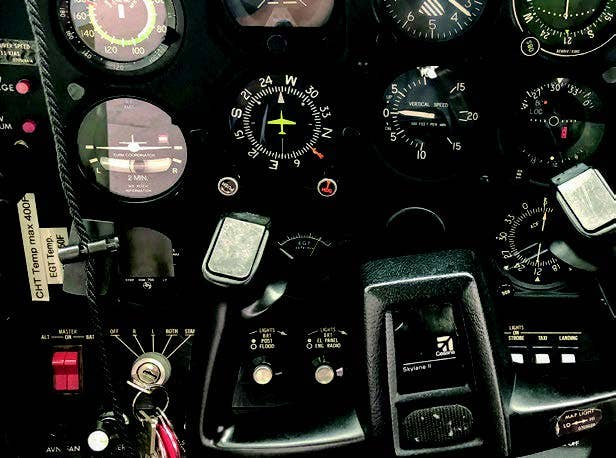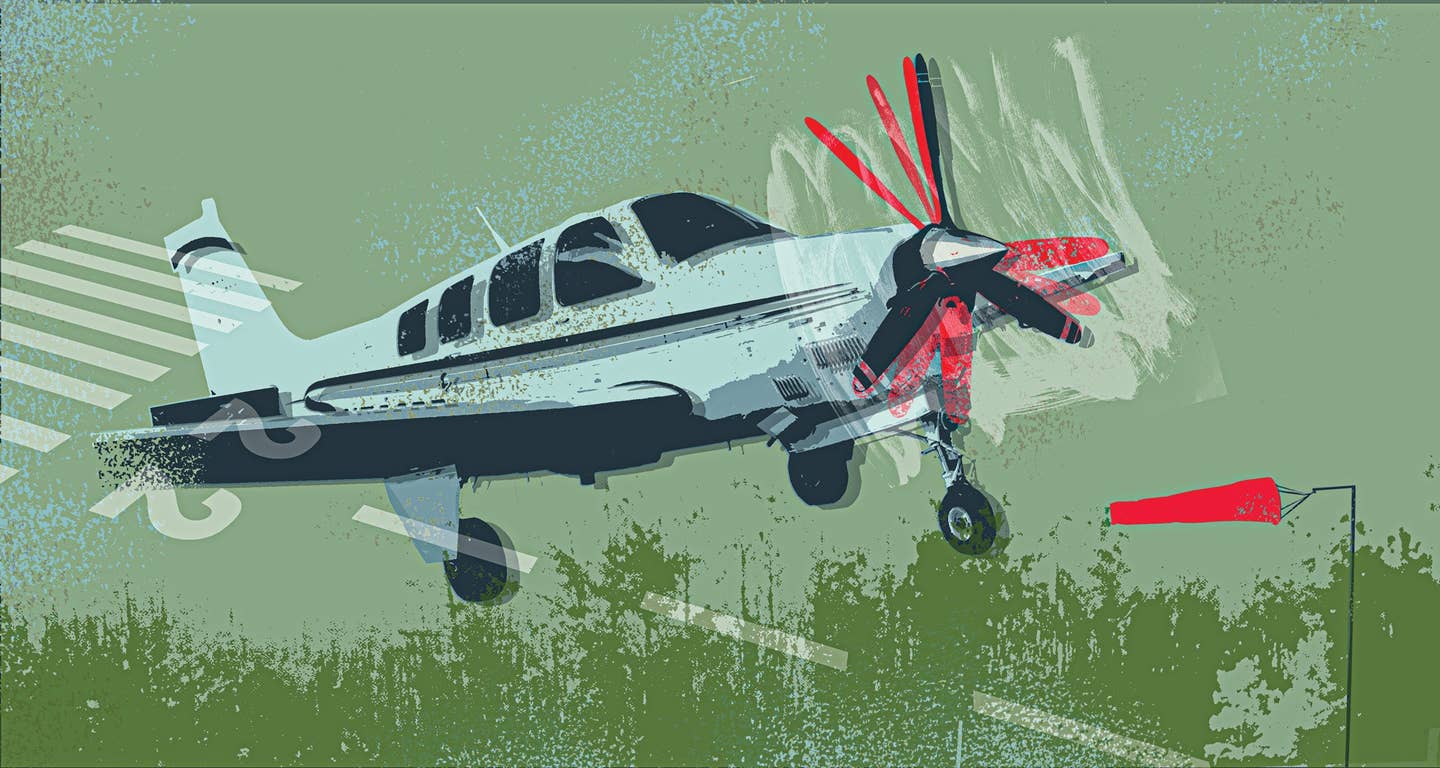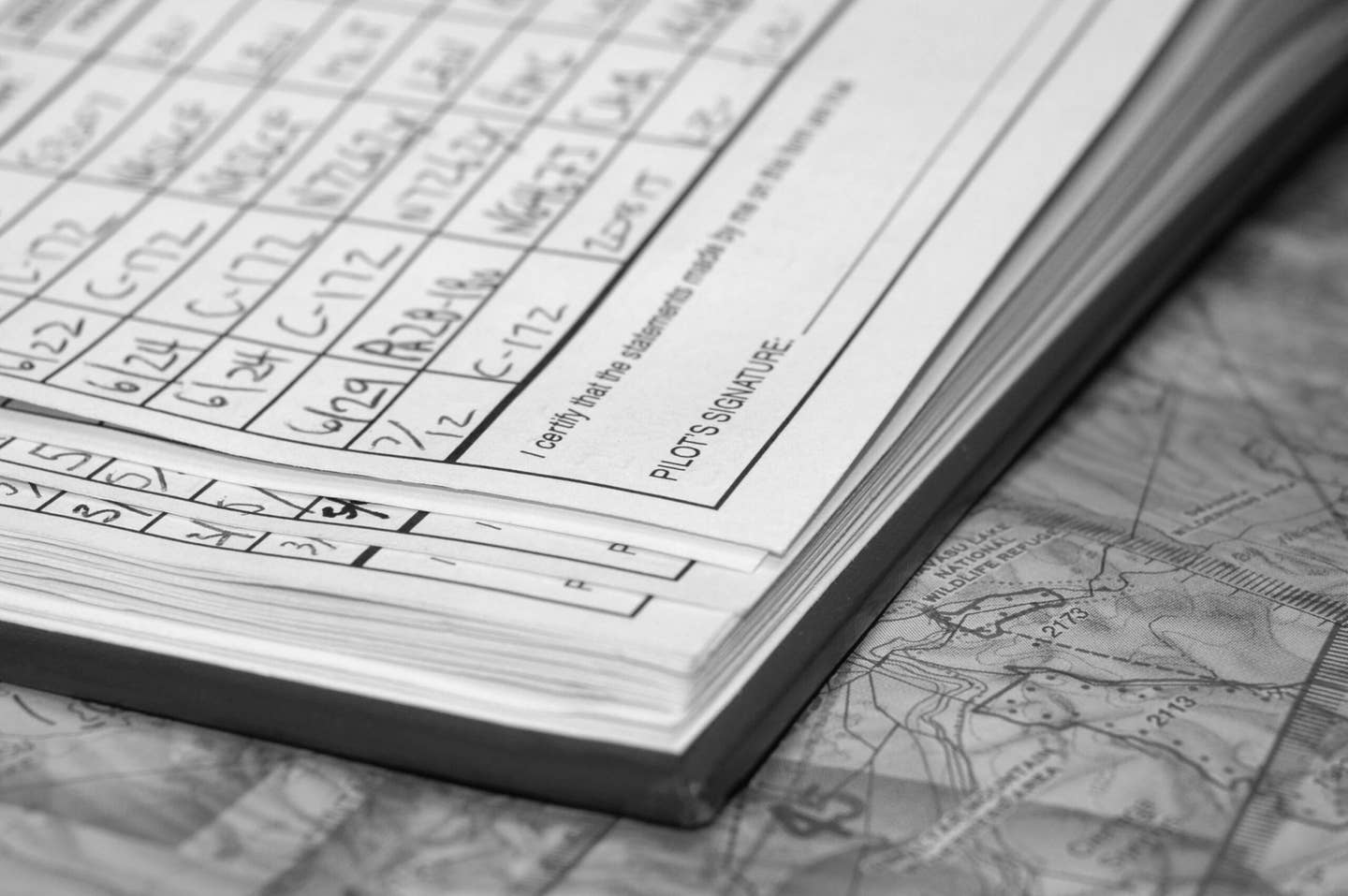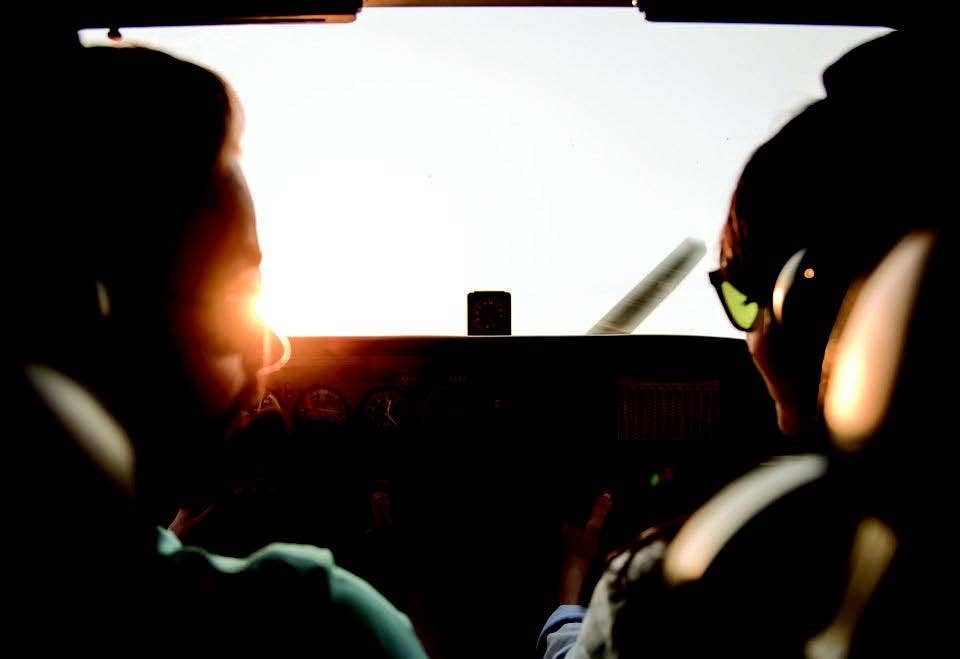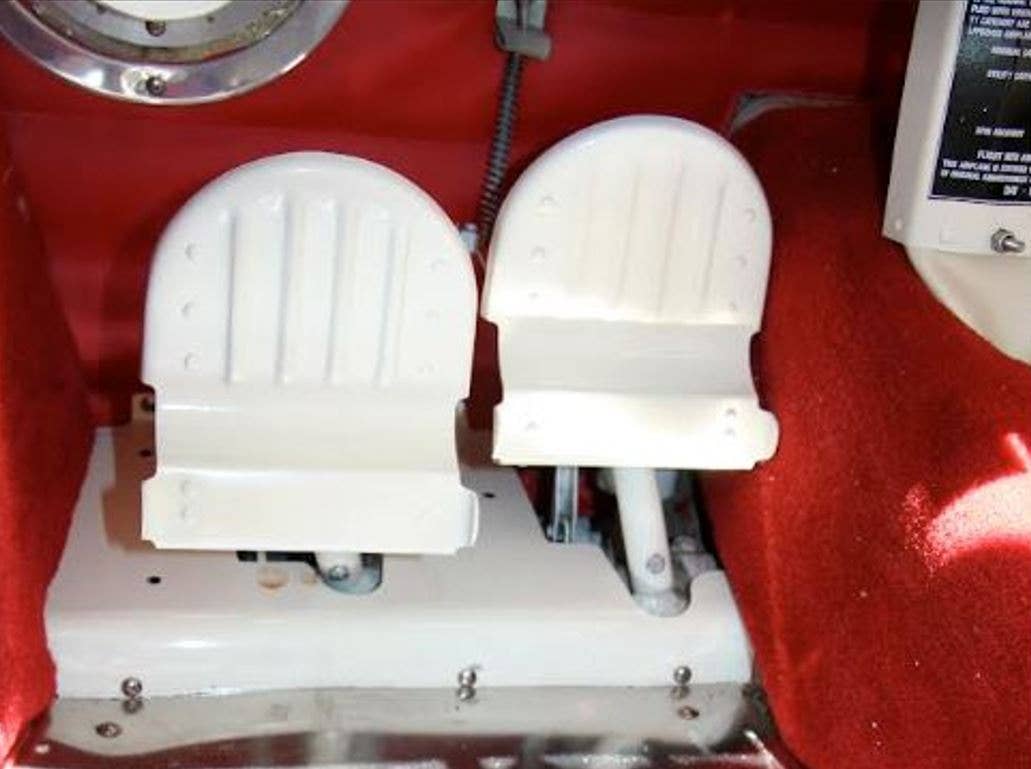
Thank whatever higher power gave you the passion and the skills to fly and the awesome opportunity to own an airplane. Textron Aviation
In a Skycatcher you don’t exactly slip the surly bonds, but we did successfully levitate on the recreational pilot test I gave yesterday. Actually, this curious little Cessna 162 sport machine could grow on you if it weren’t for that really weird control stick. My earnest young applicant was nervous but well prepared, and he did an outstanding job on both the oral and flight portions of the test. When we taxied back in and shut down, two guys were walking across the ramp to push us back onto the tiedown, and the applicant was surprised. Students rarely rate that kind of service. (I suspect they were there for my benefit.) Anyway, he ran through the shutdown checklist and opened the clamshell door to get out, but before they got any nearer I rather vigorously waved the helpers off and directed the pilot’s attention to the ignition switch. To his chagrin it was still in the “both” position.
His overall performance was outstanding, and I chalked up this serious screw-up to his excitement and relief that the ordeal was over. He passed but we had a long talk, and I’m pretty sure he’ll never exit an airplane again without double-checking the ignition switch.
The next day was a private multiengine retest in an Aztec, and I was delighted that this guy had his mojo back. The problem had been the “engine failure on takeoff” maneuver. This time he nailed the speed, kept it going straight and identified the correct engine, which made me feel much warmer and fuzzier than the previous ride when he’d selected the wrong motor to shut down. He was also happy and excited as we taxied in and shut down, but I was less than happy when he began climbing out of the Aztec with both magneto switches still in the “on” position. Another long talk!
In the list of serious things you need to remember about aviating, a hot ignition switch is right near the top. I’ve done it more than once in my Cessna 180, but after two friends tangled with live propellers — one with severe shoulder and arm injuries and the other one dead — I faithfully began removing the key from the ignition and hanging it by its chain (with rabbit’s foot and St. Christopher medal) on the nearby alternate air knob.
But here’s a truly painful confession: About a week before those two practical tests and despite my good intentions, I preflighted the 180, tugged it out of the hangar, hopped in and — you got it — found the key in the ignition in the “both” position. Now nobody beats herself up harder than I do and that was flat-out inexcusable — careless, stupid and beneath somebody who ranks herself among the world’s great pilots. Worse, I can’t remember why it happened. New rule: Martha, quit trying to prove how fast you can leap out of the airplane. Sit still for a few minutes after shutdown and read the %!&#@$* checklist.
Well, you can only kick yourself in the butt for so long, and then it’s time to get on with living. But since you’re reading this, do me a favor and remind yourself to approach any propeller with caution and suspicion.
When you get down to the nitty-gritty, assuring the ignition is off after shutdown and checking control movement, fuel and flaps before takeoff pretty much covers the things that will kill you. But I’ve been thinking about other stuff that’s important for people like us who know and love airplanes. Despite what’s being stuffed down our throats by the FAA, educational psychologists who don’t fly and — forgive me — experts, like John and Martha, who do, I don’t believe expertise in “risk management” encases you in a magical safety bubble that eliminates screw-ups. If you don’t have common sense — and that’s basically what risk management is — then you’ll never convince me it can be taught. Most of us do our best to stay current, learn all we can, and spend tons of money on the latest and greatest weather and flight-planning gadgetry. We practice endless IFR approaches and VFR takeoffs and landings, lavish care on our airplanes, and then we go fly … and sometimes we bite off just a little more than we’re comfortable chewing.
But, as Amelia wrote:
“Courage is the price that life exacts for granting peace, The soul that knows it not, knows no release, From little things; Knows not the livid loneliness of fear Nor mountain heights where bitter joy can hear The sound of wings.”
Or, more succinctly, Eleanor Roosevelt:
“Do something every day that scares you.”
In 54 years of messing around airports and airplanes, here are some tips I’ve picked up that might make your flying more rewarding, less stressful, less expensive and more fun — not necessarily in that order:
On owning an airplane: When negotiating to buy an airplane (yes, buy one and let your kids work their way through college — it builds character), find a mechanic you trust to do the prepurchase and pay him for his time and travel. Then have him do the annual; buying an airplane "with fresh annual" is like buying one of those big mesh bags of oranges or apples at Kroger. They're cheaper, but you always find a few moldy specimens inside. And be very, very careful about partnerships. This demands far more thoughtful selectivity than choosing a spouse. Finding a replacement wife is peanuts compared to finding a kindred spirit who will love and care for your 182 or Piper Vagabond as much as you do.
On taking practical tests: Before you arrive with the aircraft maintenance records, have tabs on the pages with the annual, 100-hour, transponder, pitot-static and ELT checks. Mechanics make entries in strange places, and by the time you find them or have to make a few phone calls, you'll be a nervous wreck. When the examiner/inspector asks for a number you can't remember — Vxse or Va or zero fuel weight or absolute ceiling — pick a semilogical number, look him in the eye, and state it in a firm, assured tone. Chances are he doesn't know the answer and won't bother to check. In flight, if a controller turns you in too close to the fix or runs you through the localizer, tell him you want vectors back around instead of trying to pull off something that's turning ugly. If you file, put "flight test" in the remarks section; the good guys will often give you nice, long vectors. And if you're hand-flying the airplane (flight test or not), trim, trim, trim. Oh, yeah, and unless he's on the jumpseat, offer the guy giving you the test a landing.
Miscellaneous: Don't cancel on a bad forecast and don't depend on a good one. Get checked out in a taildragger on a grass strip and go someplace fun to get a seaplane rating. (I promise you'll love both.) When you put the airplane back in the hangar, fuel it, wipe the bugs off and clean the windshield; a nose and wing with leading edges caked with smashed bugs are clear evidence that you don't care and don't deserve to own the airplane. Go ahead and buy those expensive and comfortable sheepskin seat covers if you must, but understand they look really tacky. Never lock the airplane in the hangar and leave without running your hand down the wing. OK, sometimes I hug my propeller, but I'm going to be extra sure the ignition switch is off.
After you’ve reached “a certain age,” consider carrying the maintenance logs with you when you fly. It’s not recommended but think about it … if you prang and they burn up in the aftermath, no attorney will be suing your estate because your annual was two weeks out of date.
Thank whatever higher power gave you the passion and the skills to fly and the awesome opportunity to own an airplane. When I bought 72B I sprinkled it with holy water (it’s a Catholic thing). There was a beautiful blue enameled St. Christopher medal on the panel, which had been mounted in Ebby’s P-51, but I gave it to Sean D. Tucker because I figured he needed it more than I did. Bless your airplane in whatever way works for you — Jewish, Mormon, Wiccan, Presbyterian, agnostic or atheist. You’re in for life-changing adventures and spiritual experiences together. And, for heaven’s sake, don’t die without having willed the airplane to somebody who will love and care for it as much as you do … and don’t tell him or her beforehand. It shouldn’t be part of your estate, like a coin collection sold off by a wife or kids with other interests. I’d be seriously pissed off if my family — most of whom don’t understand the airplane thing — put 72B on the block after I depart the final fix.

Subscribe to Our Newsletter
Get the latest FLYING stories delivered directly to your inbox


